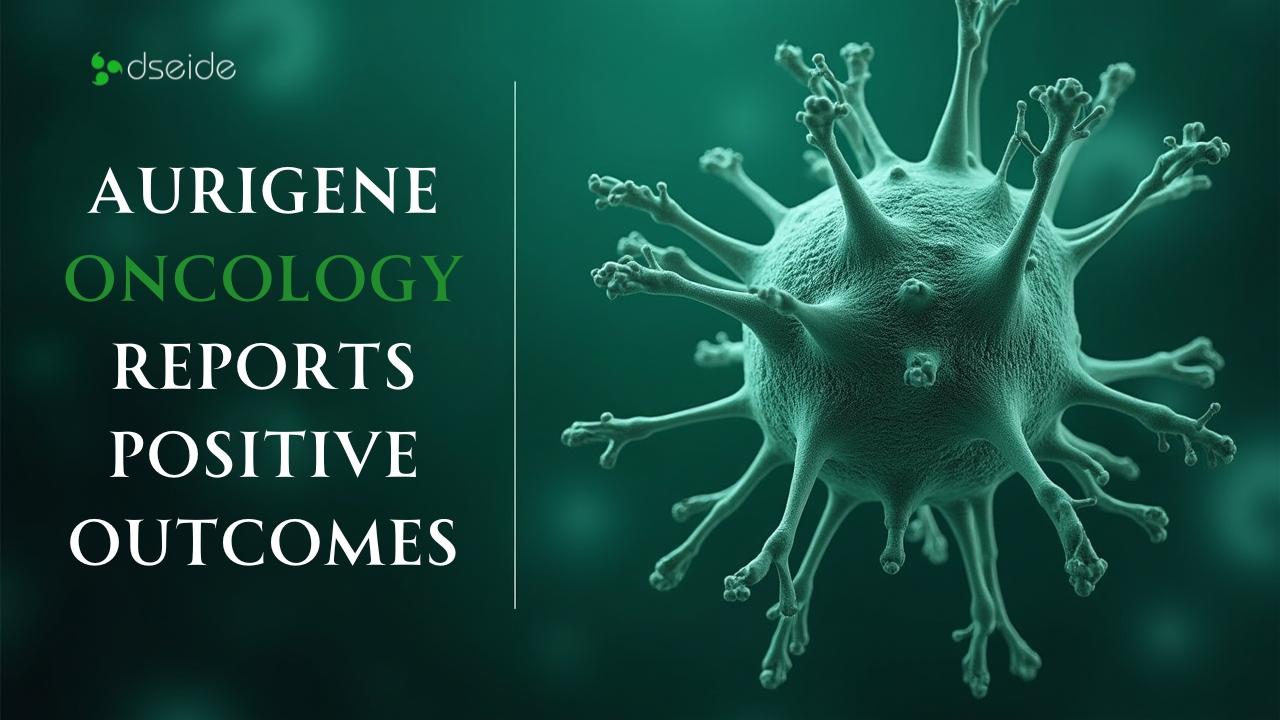Aurigene Oncology Reports Positive Outcomes from Phase 1 Trial of CAR-T Cell Therapy in India
October 8, 2024
Aurigene Oncology Limited, a subsidiary of Dr. Reddy’s Laboratories, has reported promising results from its Phase 1 trial of Ribrecabtagene autoleucel (DRL-1801), a novel autologous BCMA-directed CAR-T cell therapy. This marks a significant milestone, as it is the first clinical trial of its kind in India, targeting patients with relapsed/refractory multiple myeloma.
Key Highlights of the Trial
The trial, known as the SWASTH study, included eight patients who had previously undergone a median of 5.5 lines of treatment, with most also having undergone a transplant. Despite these treatments, their disease had progressed, making them ideal candidates for the new CAR-T therapy.
The results were particularly promising:
100% of patients showed a clinical response.
62.5% of patients (5 out of 8) achieved a stringent complete response, indicating a high level of disease control.
Importantly, there were no high-grade instances of Cytokine Release Syndrome (CRS) or neurotoxicity, two common side effects associated with CAR-T cell therapies.
These early results suggest that Ribrecabtagene autoleucel may provide a transformative treatment option for patients in India with relapsed/refractory myeloma, where options are currently limited.
A Transformative Step for Indian Oncology
Dr. Murali Ramachandra, CEO of Aurigene Oncology, expressed excitement over the results, stating that this therapy could be revolutionary for Indian myeloma patients. The success of this trial highlights India’s growing capacity for innovative cancer treatments.
Ribrecabtagene autoleucel works by targeting the BCMA (B-cell maturation antigen), which is commonly expressed on the surface of myeloma cells. This therapy utilizes a humanized single-domain antibody as its antigen-binding domain, combined with a lentivirus vector. The CAR-T cells for the trial were produced at Aurigene’s CAR-T GMP manufacturing facility in Bangalore.
What’s Next?
Following the positive outcomes of Phase 1, India’s Drugs Controller General (DCGI) has approved the commencement of Phase 2 of the trial. This progression brings hope that this novel treatment could soon become an integral part of cancer care in India.
The data from this trial was presented at the 21st Annual Meeting of the International Myeloma Society in Rio de Janeiro, further highlighting its global importance in advancing multiple myeloma therapies.
A New Era for CAR-T Therapy in India
CAR-T cell therapy has gained traction globally due to its ability to offer long-term remission for certain cancers. However, India’s access to such advanced therapies has been limited, largely due to costs and infrastructure challenges. The success of this trial could help overcome these barriers and improve accessibility to cutting-edge treatments for Indian patients.
Aurigene Oncology’s breakthrough in CAR-T therapy showcases India's growing presence in the global biotech landscape and underscores the importance of continued innovation in oncology.
As the Phase 2 trial progresses, stakeholders in India’s healthcare system will be keenly watching its results, hoping it opens doors for more advanced treatments to be developed and implemented locally.
Source:- financialexpress
October 8, 2024
Aurigene Oncology Limited, a subsidiary of Dr. Reddy’s Laboratories, has reported promising results from its Phase 1 trial of Ribrecabtagene autoleucel (DRL-1801), a novel autologous BCMA-directed CAR-T cell therapy. This marks a significant milestone, as it is the first clinical trial of its kind in India, targeting patients with relapsed/refractory multiple myeloma.
Key Highlights of the Trial
The trial, known as the SWASTH study, included eight patients who had previously undergone a median of 5.5 lines of treatment, with most also having undergone a transplant. Despite these treatments, their disease had progressed, making them ideal candidates for the new CAR-T therapy.
The results were particularly promising:
100% of patients showed a clinical response.
62.5% of patients (5 out of 8) achieved a stringent complete response, indicating a high level of disease control.
Importantly, there were no high-grade instances of Cytokine Release Syndrome (CRS) or neurotoxicity, two common side effects associated with CAR-T cell therapies.
These early results suggest that Ribrecabtagene autoleucel may provide a transformative treatment option for patients in India with relapsed/refractory myeloma, where options are currently limited.
A Transformative Step for Indian Oncology
Dr. Murali Ramachandra, CEO of Aurigene Oncology, expressed excitement over the results, stating that this therapy could be revolutionary for Indian myeloma patients. The success of this trial highlights India’s growing capacity for innovative cancer treatments.
Ribrecabtagene autoleucel works by targeting the BCMA (B-cell maturation antigen), which is commonly expressed on the surface of myeloma cells. This therapy utilizes a humanized single-domain antibody as its antigen-binding domain, combined with a lentivirus vector. The CAR-T cells for the trial were produced at Aurigene’s CAR-T GMP manufacturing facility in Bangalore.
What’s Next?
Following the positive outcomes of Phase 1, India’s Drugs Controller General (DCGI) has approved the commencement of Phase 2 of the trial. This progression brings hope that this novel treatment could soon become an integral part of cancer care in India.
The data from this trial was presented at the 21st Annual Meeting of the International Myeloma Society in Rio de Janeiro, further highlighting its global importance in advancing multiple myeloma therapies.
A New Era for CAR-T Therapy in India
CAR-T cell therapy has gained traction globally due to its ability to offer long-term remission for certain cancers. However, India’s access to such advanced therapies has been limited, largely due to costs and infrastructure challenges. The success of this trial could help overcome these barriers and improve accessibility to cutting-edge treatments for Indian patients.
Aurigene Oncology’s breakthrough in CAR-T therapy showcases India's growing presence in the global biotech landscape and underscores the importance of continued innovation in oncology.
As the Phase 2 trial progresses, stakeholders in India’s healthcare system will be keenly watching its results, hoping it opens doors for more advanced treatments to be developed and implemented locally.
Source:- financialexpress
Aurigene Oncology Reports Positive Outcomes from Phase 1 Trial of CAR-T Cell Therapy in India
October 8, 2024
Aurigene Oncology Limited, a subsidiary of Dr. Reddy’s Laboratories, has reported promising results from its Phase 1 trial of Ribrecabtagene autoleucel (DRL-1801), a novel autologous BCMA-directed CAR-T cell therapy. This marks a significant milestone, as it is the first clinical trial of its kind in India, targeting patients with relapsed/refractory multiple myeloma.
Key Highlights of the Trial
The trial, known as the SWASTH study, included eight patients who had previously undergone a median of 5.5 lines of treatment, with most also having undergone a transplant. Despite these treatments, their disease had progressed, making them ideal candidates for the new CAR-T therapy.
The results were particularly promising:
100% of patients showed a clinical response.
62.5% of patients (5 out of 8) achieved a stringent complete response, indicating a high level of disease control.
Importantly, there were no high-grade instances of Cytokine Release Syndrome (CRS) or neurotoxicity, two common side effects associated with CAR-T cell therapies.
These early results suggest that Ribrecabtagene autoleucel may provide a transformative treatment option for patients in India with relapsed/refractory myeloma, where options are currently limited.
A Transformative Step for Indian Oncology
Dr. Murali Ramachandra, CEO of Aurigene Oncology, expressed excitement over the results, stating that this therapy could be revolutionary for Indian myeloma patients. The success of this trial highlights India’s growing capacity for innovative cancer treatments.
Ribrecabtagene autoleucel works by targeting the BCMA (B-cell maturation antigen), which is commonly expressed on the surface of myeloma cells. This therapy utilizes a humanized single-domain antibody as its antigen-binding domain, combined with a lentivirus vector. The CAR-T cells for the trial were produced at Aurigene’s CAR-T GMP manufacturing facility in Bangalore.
What’s Next?
Following the positive outcomes of Phase 1, India’s Drugs Controller General (DCGI) has approved the commencement of Phase 2 of the trial. This progression brings hope that this novel treatment could soon become an integral part of cancer care in India.
The data from this trial was presented at the 21st Annual Meeting of the International Myeloma Society in Rio de Janeiro, further highlighting its global importance in advancing multiple myeloma therapies.
A New Era for CAR-T Therapy in India
CAR-T cell therapy has gained traction globally due to its ability to offer long-term remission for certain cancers. However, India’s access to such advanced therapies has been limited, largely due to costs and infrastructure challenges. The success of this trial could help overcome these barriers and improve accessibility to cutting-edge treatments for Indian patients.
Aurigene Oncology’s breakthrough in CAR-T therapy showcases India's growing presence in the global biotech landscape and underscores the importance of continued innovation in oncology.
As the Phase 2 trial progresses, stakeholders in India’s healthcare system will be keenly watching its results, hoping it opens doors for more advanced treatments to be developed and implemented locally.
Source:- financialexpress






